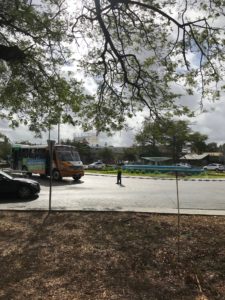
Shannan Mattiace, Professor of Political Science and International Studies at Allegheny College together with fellow researcher Sandra Ley, Associate Professor at the Center for Research and Teaching in Economics (CIDE) in Mexico City have recently published an article in the Journal of Politics in Latin America entitled “Yucatán as an Exception to Rising Criminal Violence in México” . Their research was picked up by the online magazine, Political Violence at a Glance.
The news is full of reports concerning crime and violence in Mexico fueled by the drug cartels. This level of violence, however, is not widespread throughout the country. In fact the Yucatán state is widely advertised as a safe place to live and travel. The researchers asked this important question: What explains the historically low homicide rate in Yucatán state even as neighboring states have exhibited much more visible violence?
How do Political Scientists develop research questions and design the approach to uncover answers? In this brief interview, Professor Mattiace shares her reflections on the Yucatán project:
What inspired you and Professor Ley to take on this research?
Professor Ley is both my friend and colleague; we’ve worked as research partners for several years. Sandra is an expert on criminal violence in Mexico, and I have studied a variety of subjects in the Yucatán. When we looked at the data, we were curious about Yucatán’s low homicide rate when compared with the rest of the country, and decided to uncover the story behind the data.
What surprised you the most as you looked in depth to discover the “why” beyond the statistics?
What initially surprised us is that there are cartels in the Yucatán, but no visible violence. Why is this? Has one cartel established a monopoly through a pact with the police, or is government security managed so effectively that violence is low? The other thing that surprised us is how much help we received from journalists over the course of this research. (Mexico is the most dangerous country in the world to be a journalist.) This research took place during COVID so most interviews took place over Zoom; still, they took the time to speak with us and were of tremendous help.
Are you planning any future projects?
Yes, as the conclusion of the paper reveals, though the homicide rate is unusually low, there is still a high level of domestic violence and police torture –We will continue to explore these questions in our upcoming research.
For more information, contact Professor Shannan Mattiace at smattiac@allegheny.edu.

